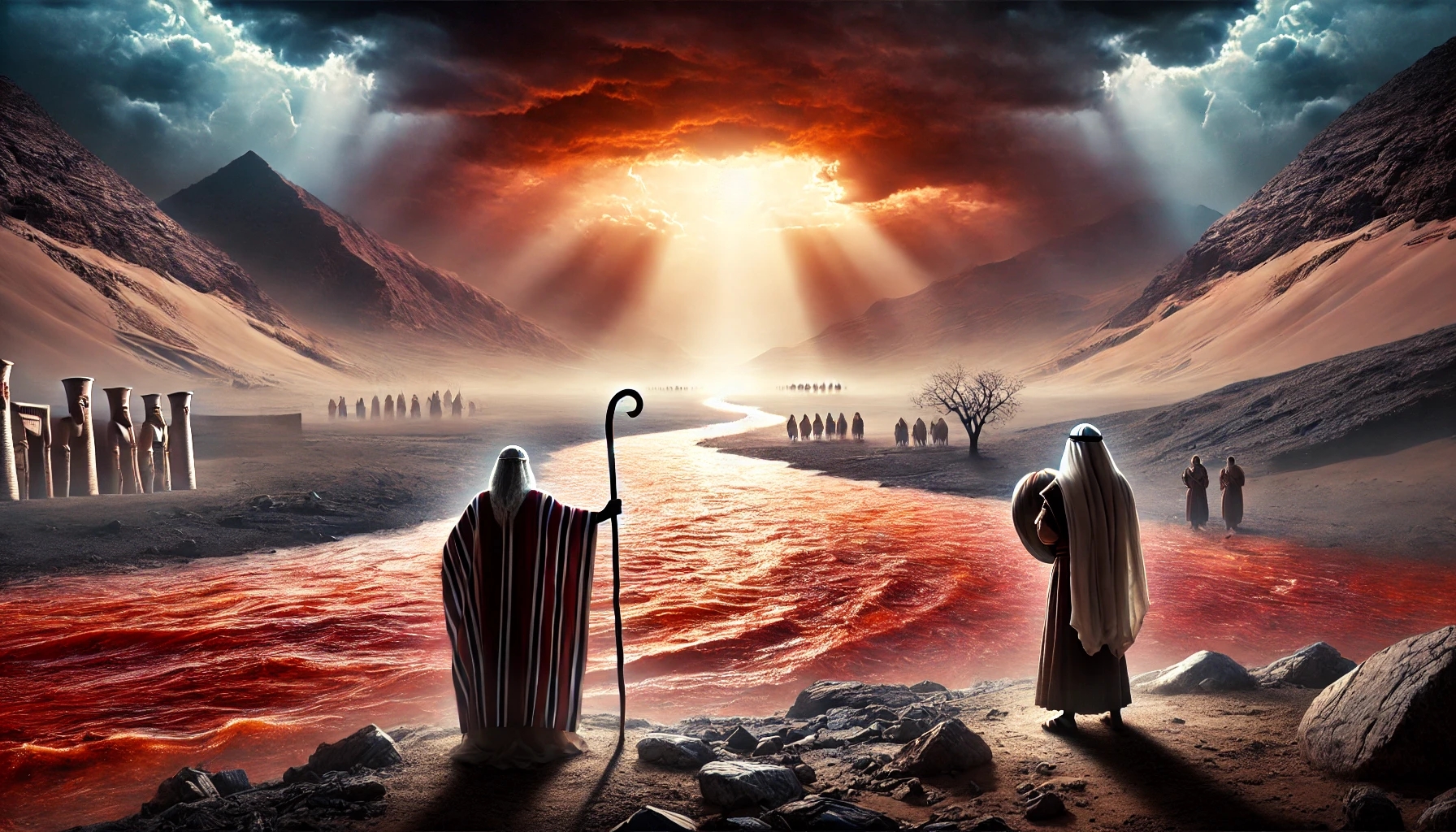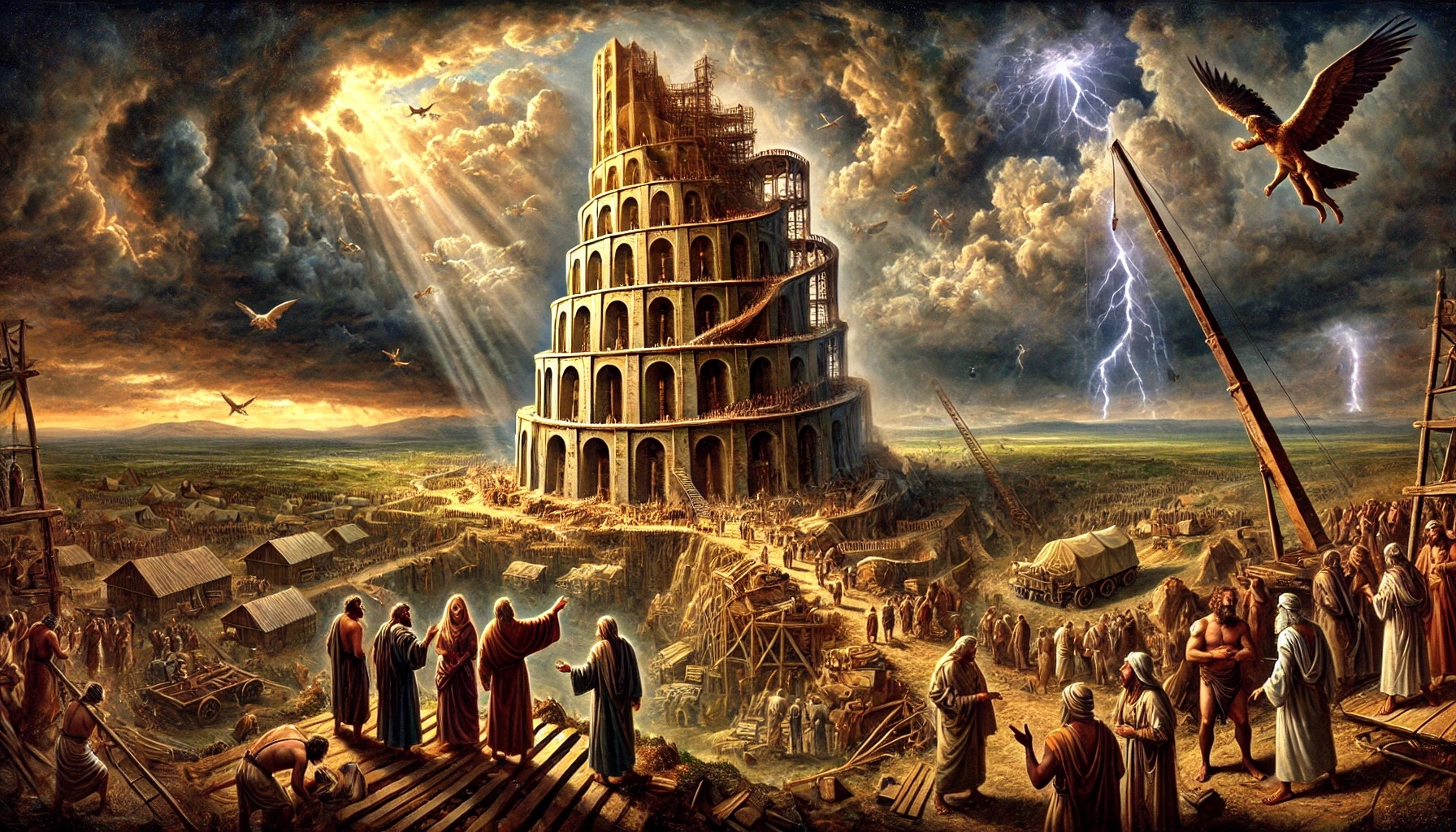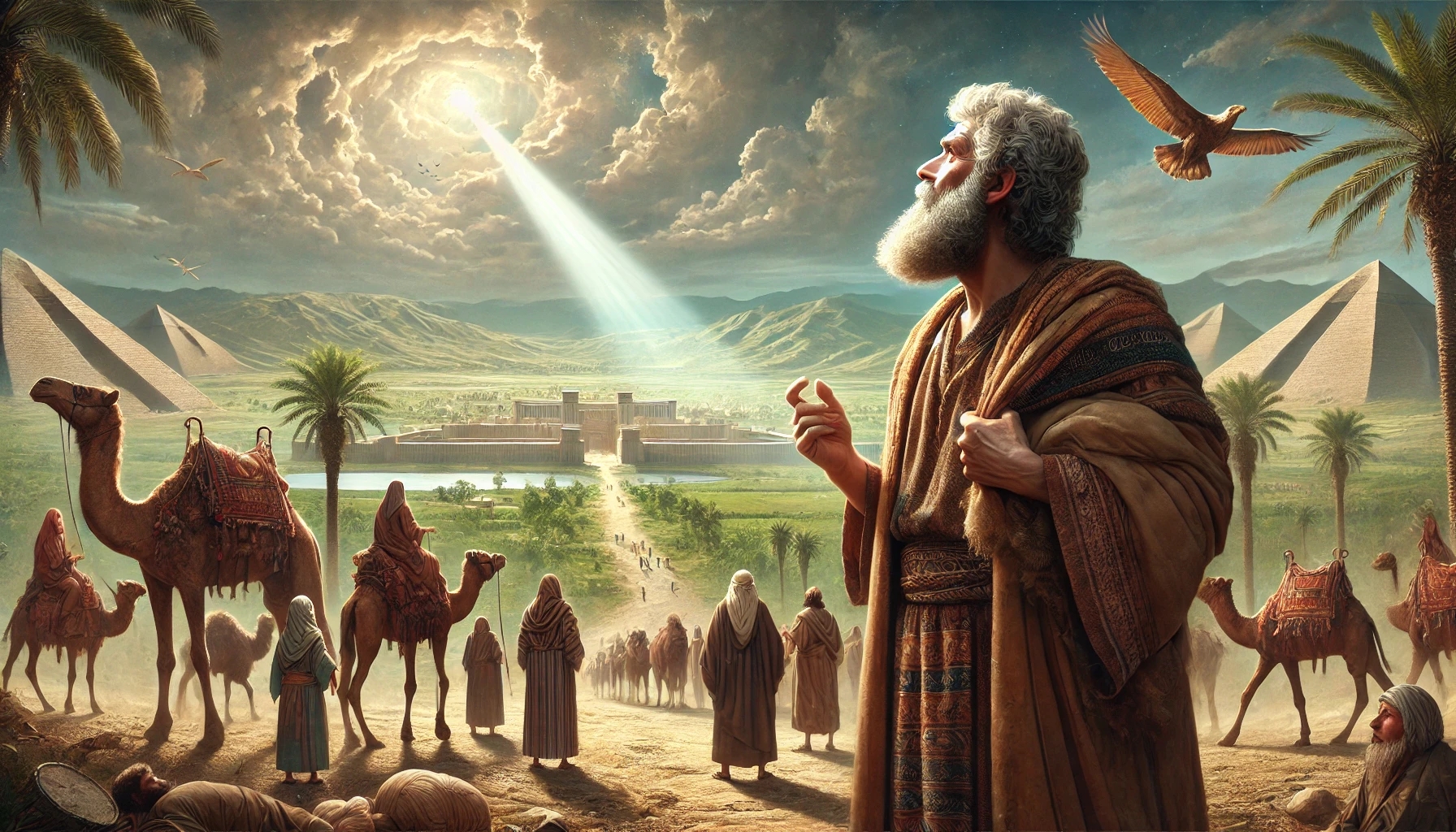
📅 June 12, 2025
📖 DAILY BIBLE READING
✨ Exodus 7 – Power Play at the Nile – God’s Call to Freedom
⛺ When signs and wonders harden or open the heart
══════════════════════════════════════════════
📜 Bible Text – Exodus 7 (KJV)
1 And the Lord said unto Moses, See, I have made thee a god to Pharaoh: and Aaron thy brother shall be thy prophet.
2 Thou shalt speak all that I command thee: and Aaron thy brother shall speak unto Pharaoh, that he send the children of Israel out of his land.
3 And I will harden Pharaoh’s heart, and multiply my signs and my wonders in the land of Egypt.
4 But Pharaoh shall not hearken unto you, that I may lay my hand upon Egypt, and bring forth mine armies, and my people the children of Israel, out of the land of Egypt by great judgments.
5 And the Egyptians shall know that I am the Lord, when I stretch forth mine hand upon Egypt, and bring out the children of Israel from among them.
6 And Moses and Aaron did as the Lord commanded them, so did they.
7 And Moses was fourscore years old, and Aaron fourscore and three years old, when they spake unto Pharaoh.
8 And the Lord spake unto Moses and unto Aaron, saying,
9 When Pharaoh shall speak unto you, saying, Shew a miracle for you: then thou shalt say unto Aaron, Take thy rod, and cast it before Pharaoh, and it shall become a serpent.
10 And Moses and Aaron went in unto Pharaoh, and they did so as the Lord had commanded: and Aaron cast down his rod before Pharaoh, and before his servants, and it became a serpent.
11 Then Pharaoh also called the wise men and the sorcerers: now the magicians of Egypt, they also did in like manner with their enchantments.
12 For they cast down every man his rod, and they became serpents: but Aaron’s rod swallowed up their rods.
13 And he hardened Pharaoh’s heart, that he hearkened not unto them; as the Lord had said.
14 And the Lord said unto Moses, Pharaoh’s heart is hardened, he refuseth to let the people go.
15 Get thee unto Pharaoh in the morning; lo, he goeth out unto the water; and thou shalt stand by the river’s brink against he come; and the rod which was turned to a serpent shalt thou take in thine hand.
16 And thou shalt say unto him, The Lord God of the Hebrews hath sent me unto thee, saying, Let my people go, that they may serve me in the wilderness: and, behold, hitherto thou wouldest not hear.
17 Thus saith the Lord, In this thou shalt know that I am the Lord: behold, I will smite with the rod that is in mine hand upon the waters which are in the river, and they shall be turned to blood.
18 And the fish that is in the river shall die, and the river shall stink; and the Egyptians shall lothe to drink of the water of the river.
19 And the Lord spake unto Moses, Say unto Aaron, Take thy rod, and stretch out thine hand upon the waters of Egypt, upon their streams, upon their rivers, and upon their ponds, and upon all their pools of water, that they may become blood; and that there may be blood throughout all the land of Egypt, both in vessels of wood, and in vessels of stone.
20 And Moses and Aaron did so, as the Lord commanded; and he lifted up the rod, and smote the waters that were in the river, in the sight of Pharaoh, and in the sight of his servants; and all the waters that were in the river were turned to blood.
21 And the fish that was in the river died; and the river stank, and the Egyptians could not drink of the water of the river; and there was blood throughout all the land of Egypt.
22 And the magicians of Egypt did so with their enchantments: and Pharaoh’s heart was hardened, neither did he hearken unto them; as the Lord had said.
23 And Pharaoh turned and went into his house, neither did he set his heart to this also.
24 And all the Egyptians digged round about the river for water to drink; for they could not drink of the water of the river.
25 And seven days were fulfilled, after that the Lord had smitten the river.
══════════════════════════════════════════════
🔵 Introduction
The seventh chapter of Exodus marks the beginning of the epic confrontation between the God of Israel and the Pharaoh of Egypt. Through Moses and Aaron, God performs wonders right in the heart of Egyptian idolatry and power—and yet the ruler’s heart only hardens further. This chapter draws us into the dynamics of divine authority, human choice, and how we respond to God’s actions.
══════════════════════════════════════════════
🟡 Commentary
1.Calling and Commissioning (vv. 1–7)
-
Divine authority: “I have made you like God to Pharaoh”—God elevates Moses as His agent of power.
-
Human instruments: Aaron serves as prophet and spokesperson, while Moses embodies God’s presence.
-
Purposeful hardening: God declares He will harden Pharaoh’s heart in order to display many signs and wonders (vv. 3–5).
-
Goal of the plagues: To deliver Israel, to demonstrate God’s power to Egyptians and Israelites alike (vv. 4–6).
2.First Sign: Staff Becomes a Snake (vv. 8–13)
-
Demonstration before the ruler: Aaron throws down his staff, which turns into a snake (vv. 9–10).
-
Magicians compete: Egyptian magicians replicate the miracle, but Aaron’s staff swallows theirs (vv. 11–12).
-
Result: Pharaoh’s heart grows harder, and he remains deaf to God’s command (v. 13).
3.Second Sign: Water Turns to Blood (vv. 14–25)
-
Renewed summons: Moses is told to meet Pharaoh by the water and repeat the warning (vv. 14–17).
-
Execution: With the same staff, Moses strikes the Nile—its waters turn to blood, fish die, and the river stinks (vv. 18–21).
-
Pharaoh’s reaction: The magicians mimic the plague, yet Pharaoh remains unmoved and searches in vain for new water sources (vv. 22–24).
-
Extended judgment: The Nile remains polluted for seven days to underscore the severity of God’s judgment (v. 25).
4.Announcement of the Third Plague: Frogs (vv. 26–28)
-
God’s word again: A plague of frogs is promised to cover the land if Pharaoh refuses to let the people go (vv. 26–28).
-
Rising tension: The escalating series of judgments is now clearly set in motion.
══════════════════════════════════════════════
🟢 Summary
God confronts the mighty Pharaoh with signs that expose both the power of Egyptian gods and the ruler’s own pride. Despite irrefutable displays of divine power, Pharaoh’s heart only hardens. The first two plagues—snake and blood—prove that human cunning and magic cannot thwart God’s will. These judgments pave the way for further acts that will ultimately secure Israel’s freedom.
══════════════════════════════════════════════
🔴 A Message for Us Today
We, too, often stand between God’s call to freedom and the temptation to harden ourselves in familiar patterns. God’s Word and His wonders may challenge or unsettle us. The key question isn’t whether we see signs, but how we respond: Do we heed His Word and soften our hearts, or do we resist and cling to our own defenses?
══════════════════════════════════════════════
💡 Thought Prompt
-
Check your heart: In what area of my life am I acting like Pharaoh—deaf and hardened rather than open and humble?
-
Hear God’s call: Where is God calling me today into freedom, and what “staffs” (means) has He given me to respond?
-
Choose response over resistance: How can I, instead of self-assertion and rigidity, embrace the openness and trust that led Israel out of Egypt?






















